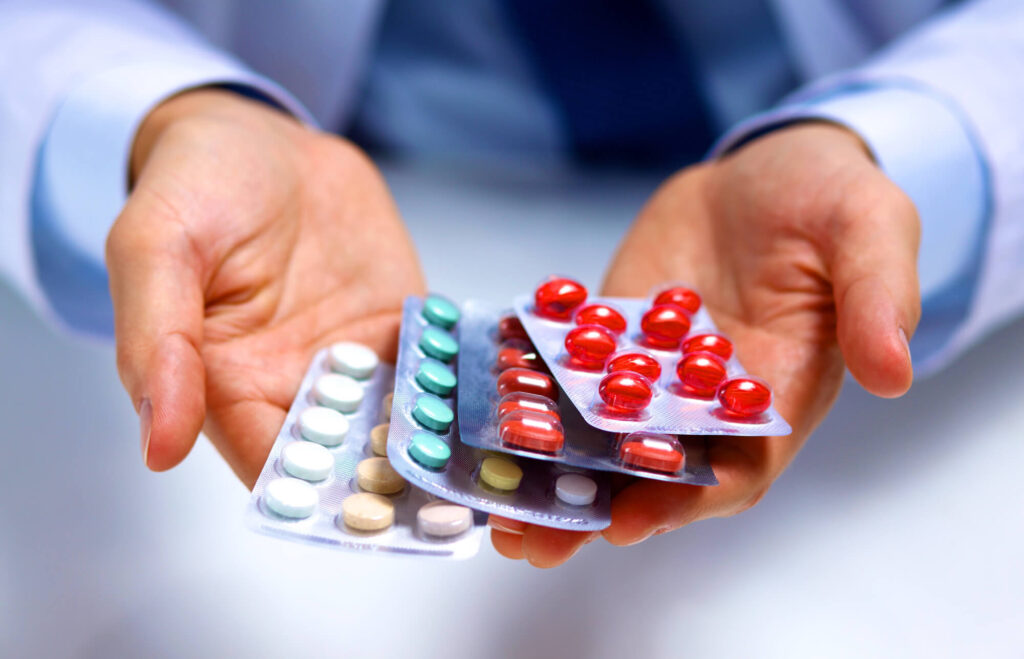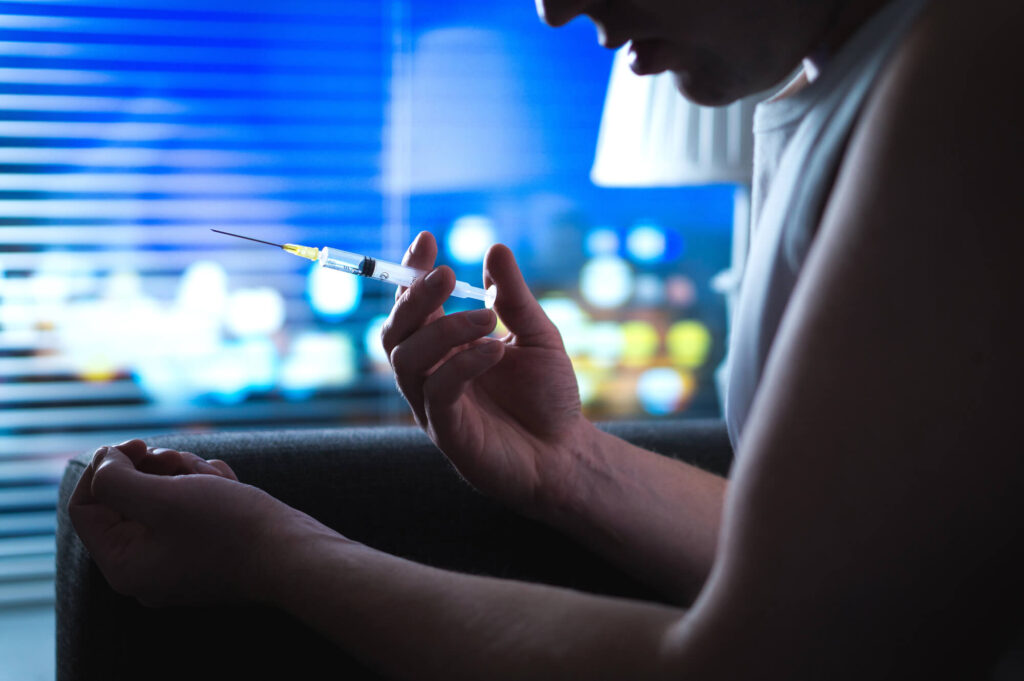
Struggling with erectile dysfunction and wondering if testosterone injections might be a better fit than your current ED medication? You’re not alone. Many men face this crossroads—especially when standard pills don’t deliver lasting results or when energy, libido, and mood are also taking a hit.
Testosterone injections and ED medications like Viagra and Cialis treat sexual dysfunctions in entirely different ways. Understanding the root cause of your symptoms is key to choosing the right path. Is it a hormonal imbalance, a blood flow issue, or something else?
Here, we’ll break down the core differences between testosterone treatment vs. ED medications—from how they work and who they help to side effects and combination options.
Backed by decades of clinical insight, Boston Medical Group offers a uniquely tailored approach to men’s sexual health, helping you make a medically sound decision with confidence.
Understanding the Basics of Testosterone Treatment and ED Meds
Choosing between testosterone injections and ED medications begins with knowing what each treatment does and why it’s prescribe in the first place.
What Are Testosterone Injections?
Testosterone Replacement Therapy (TRT), also known as exogenous androgen therapy, involves intramuscular testosterone injections that aim to bring serum testosterone levels (the testosterone values measured in the blood) back to the normal range. This therapy is used to treat hypogonadal conditions, particularly secondary hypogonadism and severe hypogonadism, where the body doesn’t produce enough testosterone due to issues with the pituitary gland or testicular failure.
Common uses with low levels of testosterone include low libido, fatigue, loss of muscle mass, and decreased sexual desire. Testosterone treatment, however, is not meant specifically for improvement in erectile function. Instead, the broad effects that the hormone has on male health in general lead to the benefits of testosterone replacement extending beyond sexual function to improvement in quality of life and mood stabilization.
Among the main causes of low levels of serum testosterone are:
- Natural decline in testosterone levels starting after age 30.
- Injury or infection of the testicles.
- Chemotherapy or radiation treatment for cancer.
- Genetic abnormalities, such as Klinefelter’s Syndrome.
- Hemochromatosis, which is a condition where there is excessive iron in the body.
- Dysfunction of the pituitary gland or hypothalamus.
- Inflammatory diseases, such as sarcoidosis.
- Certain medications, especially hormones, are used to treat prostate cancer and corticosteroid drugs.
- Chronic illnesses, including chronic kidney failure and cirrhosis of the liver.
- Stress and alcoholism.
- Obesity, especially abdominal obesity.
It is also worth noting that besides injections, TRT is also applied with transdermal testosterone or testosterone gel.
What Are ED Medications (PDE5 Inhibitors)?
PDE5 inhibitors such as sildenafil (Viagra) and tadalafil (Cialis) are oral agents used in the treatment of erectile dysfunction. They work by increasing cyclic guanosine monophosphate (cGMP), promoting smooth muscle relaxation in penile tissue, enhancing blood flow, and supporting an erection during intercourse.
Patients with erectile dysfunction typically use these medications due to vascular disease, performance anxiety, or aging-related decline in erectile function.
The Biological Difference in Action
Although both therapies aim to enhance sexual function, they work through entirely different biological mechanisms.
How Testosterone Affects Sexual Function
The role of testosterone extends across sexual desire, arousal, and general well-being. Epidemiologic studies and clinical significance research confirm that testosterone treatment can positively influence sex drive, mood, and nocturnal erections.
However, while testosterone may enhance libido and sexual behavior, it may not directly improve erectile response in all cases, especially if the underlying issue involves vascular or psychological components. If a man’s erectile dysfunction comes from a decrease in serum testosterone in that way, then it’s a viable option.
How ED Medications Work
PDE-5 inhibitors act locally by enhancing the nitric oxide signaling pathway. This allows for increased blood flow to the penis upon sexual stimulation, facilitating an adequate erection. The drug does not induce desire but improves the mechanical ability to achieve and sustain a normal erection and erection to completion.
Effectiveness Comparison
Which treatment works better? That depends on the underlying cause of the erectile disorder and individual biochemical measures.
When Testosterone Helps ED—and When It Doesn’t
Testosterone therapy is particularly effective in hypogonadal patients whose testosterone values fall below the reference range. In these cases, normalization of testosterone levels can result in measurable improvement in erectile function scores, sexual activity, and overall sexual arousal.
However, for impotent patients with normal testosterone levels, the effects of testosterone replacement on penile erection quality are minimal. In such cases, a PDE5 inhibitor is more appropriate as a treatment for erectile dysfunction.
When ED Medications Are More Effective
ED medications are best suited for patients with erectile dysfunction that is situational or vascular-related. These include individuals with cardiovascular disease or coronary artery disease, blood pressure issues, or simply age-related decline in endothelial function. These drugs deliver rapid results and are often effective even when their serum testosterone levels are below the normal range.
Treatment Duration, Onset, and Convenience
Different treatments suit different lifestyles. Each has its own pace when it comes to how fast they act and the maintenance required on the part of the patient. These factors are frequently underappreciated by both healthcare providers and patients looking for an improvement in erectile function.
TRT Timeline: Long-Term Hormonal Rebalancing
Testosterone replacement therapy injections are typically administered weekly or biweekly. Benefits may take several weeks to emerge and require monitoring of levels of serum testosterone to avoid fluid retention and other potential risks. The process supports sustained improvement but demands commitment, as the role of testosterone might vary from man to man, and a gradual increase in testosterone levels will not be noticed right away.
ED Pills: Rapid Onset, As-Needed Use
Oral agents like PDE5 inhibitors can take effect within 30–60 minutes and last several hours. Their convenience for spontaneous sexual activity makes them a go-to for many, although not all respond equally, and some patients with certain medical conditions are not candidates.
Lifestyle adjustments and trial-and-error may be necessary.
Side Effects & Risks
Both treatments are generally safe but not without side effects. Physicians and healthcare providers must always carry out exhaustive examinations and tests to make sure the patient has the best possible response to testosterone therapy or ED medications.
Risks of Testosterone Injections
While many hypogonadal conditions improve with TRT, exogenous androgen therapy can result in:
- Acne
- Fluid retention
- Testicular shrinkage
- Suppressed fertility
- Increased cardiovascular risk in certain populations
- Worsening of benign prostatic hyperplasia
Monitoring through biochemical measures and physician oversight is essential.
Side Effects of PDE5 Inhibitors
These are typically mild but may include:
- Headaches
- Flushing
- Visual disturbances
- Interaction risks with blood pressure or heart medications
Those with severe cardiovascular disease should consult their doctor before using.
Who Might Benefit Most From Each Option?
Finding the root cause of erectile dysfunction is the first step for determining the best treatment for erectile dysfunction. That includes knowing the patient’s health record, current fitness, condition, and testosterone levels.
With that being said, both generally lead to an improvement in erectile function in the following cases:
Therapy with Testosterone May Be Right For You If…
- You have a low desire for sex and other signs of hypogonadism.
- Serum testosterone concentrations are clinically low.
- You have symptoms beyond sexual behavior, such as low mood, fatigue, or loss of muscle mass.
ED Medications May Be Right If…
- You need on-demand help with achieving a hardness of erections despite having a desire for sex.
- You experience situational or performance-based ED after initial sexual arousal.
- You have normal adult testosterone levels and are otherwise healthy.
Can You Use Both? Hybrid Therapy Explained
For some, using both treatments addresses different layers of the issue. Testosterone replacement therapy boosts sexual arousal and general energy after achieving normal testosterone levels, while PDE5 inhibitors directly enhance erectile function.
Clinical experience, including Boston Medical Group’s ICP (erectile dysfunction shots), shows that combination therapy can lead to significant improvements, especially in hypogonadal impotence.
Boston Medical Group’s Personalized Approach
We don’t believe in one-size-fits-all solutions. Every man’s body and biochemistry is different.
Through lab work, physical evaluation, and specialized tests, we assess levels of testosterone, erectile function, and potential vascular disease.
Our care team creates treatment protocols combining options like:
- Intramuscular testosterone or testosterone gel
- Vacuum erection devices
- PDE-5 inhibitors
- Erectile dysfunction shots (ICP)
We provide ongoing care, prescription management, and long-term tracking of the progress made in treating your erectile disorder or premature ejaculation.
At Boston Medical Group, We Make Sure You Get the Best Treatment for ED
Whether it’s TRT, oral androgens, or erectile medications, the goal is to improve your quality of life. Identifying whether your ED is hormonal, vascular, or psychological is step one. The best outcomes come from medical guidance and a personalized, responsive treatment plan.
Ready to stop guessing and start improving your sexual health? Our team is here to help you.
Schedule a hormonal evaluation, explore ED treatment options, and learn more about our proprietary programs by visiting our ED Treatment page.



